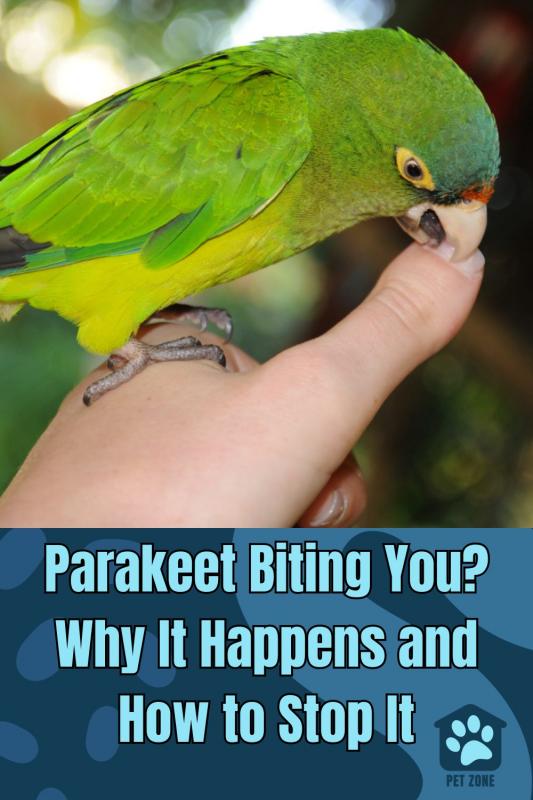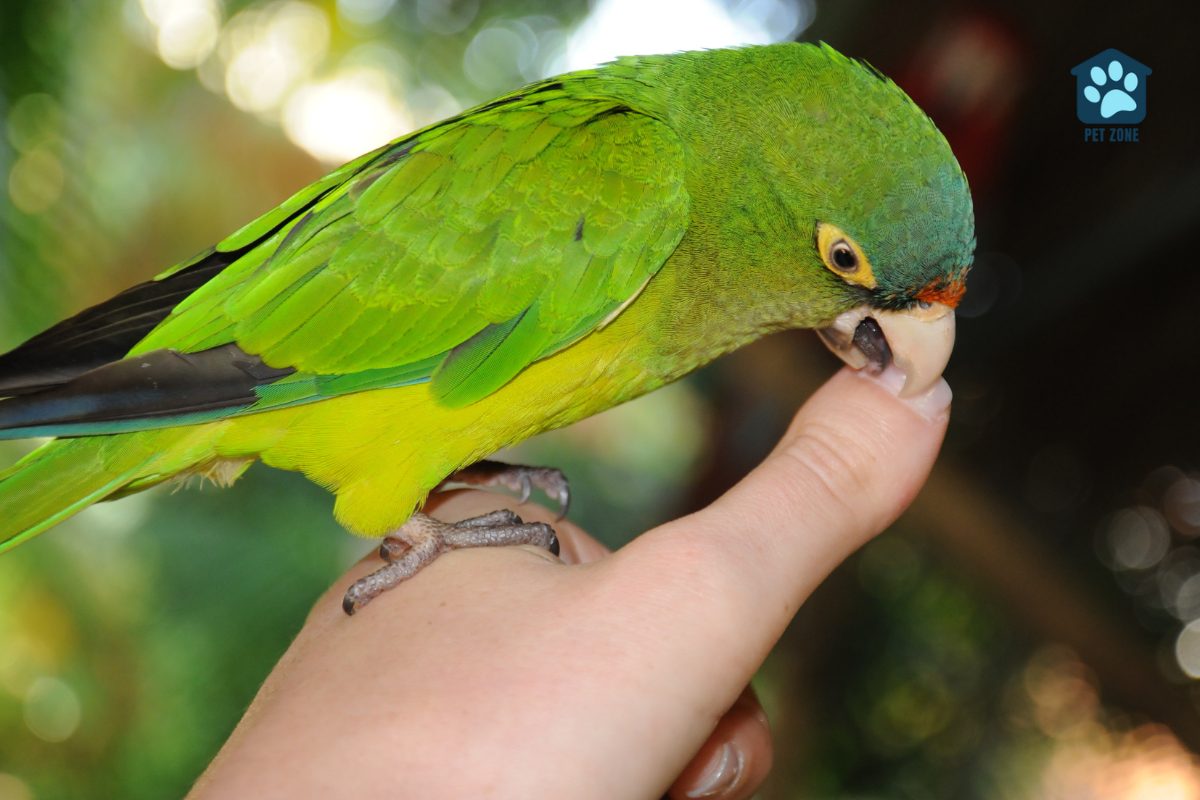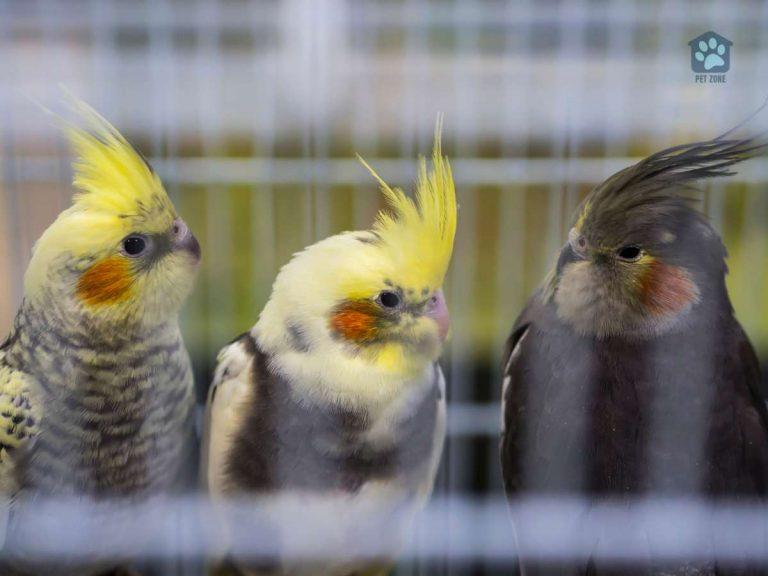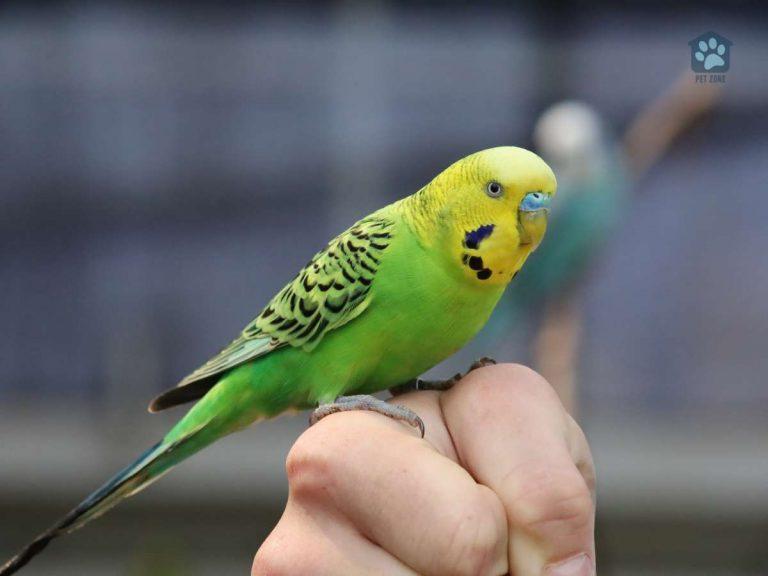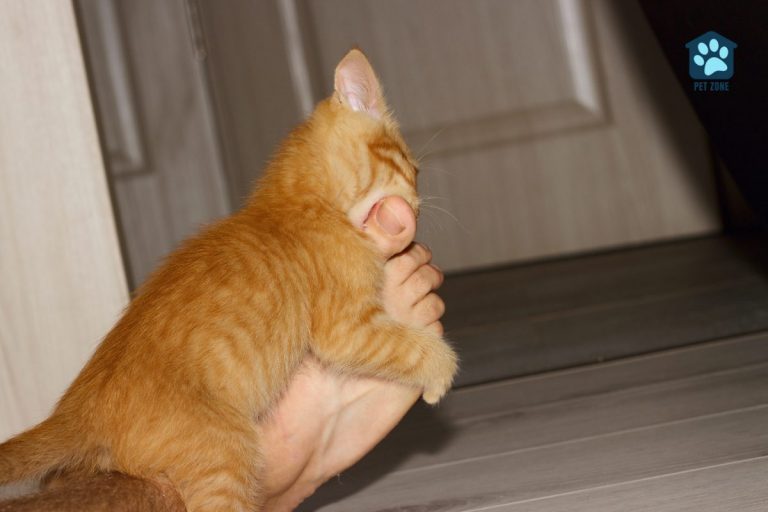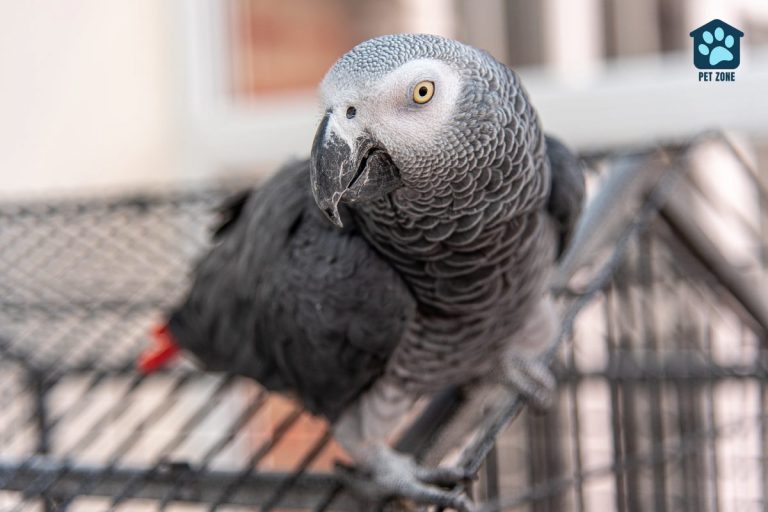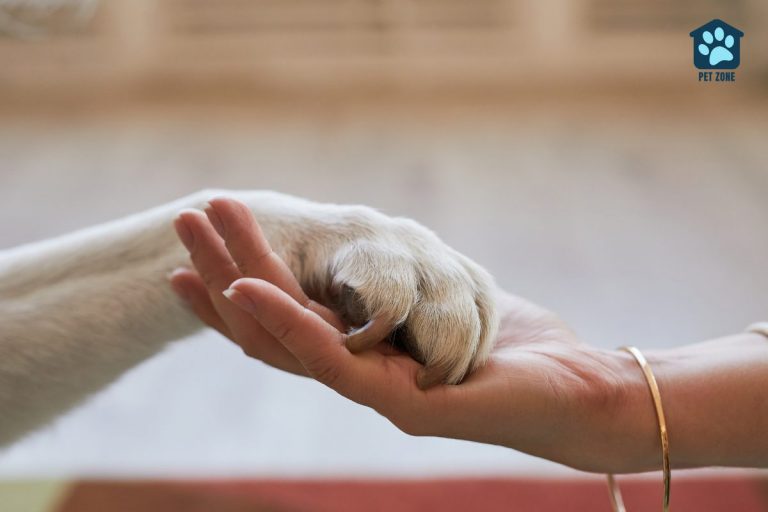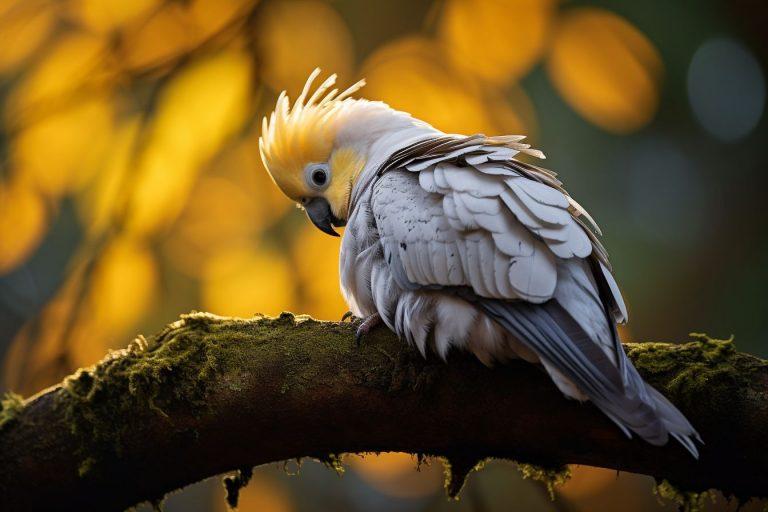Estimated reading time: 10 minutes
Is your pet parakeet suddenly nipping at you? These little bird bites, though not aggressive by nature, can break the skin and cause discomfort. Our comprehensive guide will dive deep into why this biting behavior occurs and arm you with solutions to manage it effectively.
Read on, bird owners, as we unveil the secrets of taming a feisty parakeet!
Key Takeaways
- Parakeets may bite due to fear, jealousy, boredom, defending territory, mating instincts, lack of owner confidence, or dissatisfaction with their diet or sleep schedule.
- To stop your parakeet from biting, use proper handling techniques like approaching calmly and confidently and reinforcing positive behavior.
- Bonding with your parakeet through talking softly, offering treats, spending time near the cage, gradually handling them, and providing interactive toys can help reduce biting behavior.
- Ensure your parakeet has a balanced diet and consistent rest schedule to prevent biting. Consult a vet if necessary for further assistance.
Understanding Why Your Parakeet is Biting You
There are several reasons why your parakeet may be biting you, including fear or jealousy, boredom, defending territory, mating instincts, lack of owner confidence, and dissatisfaction with their diet or sleep schedule.
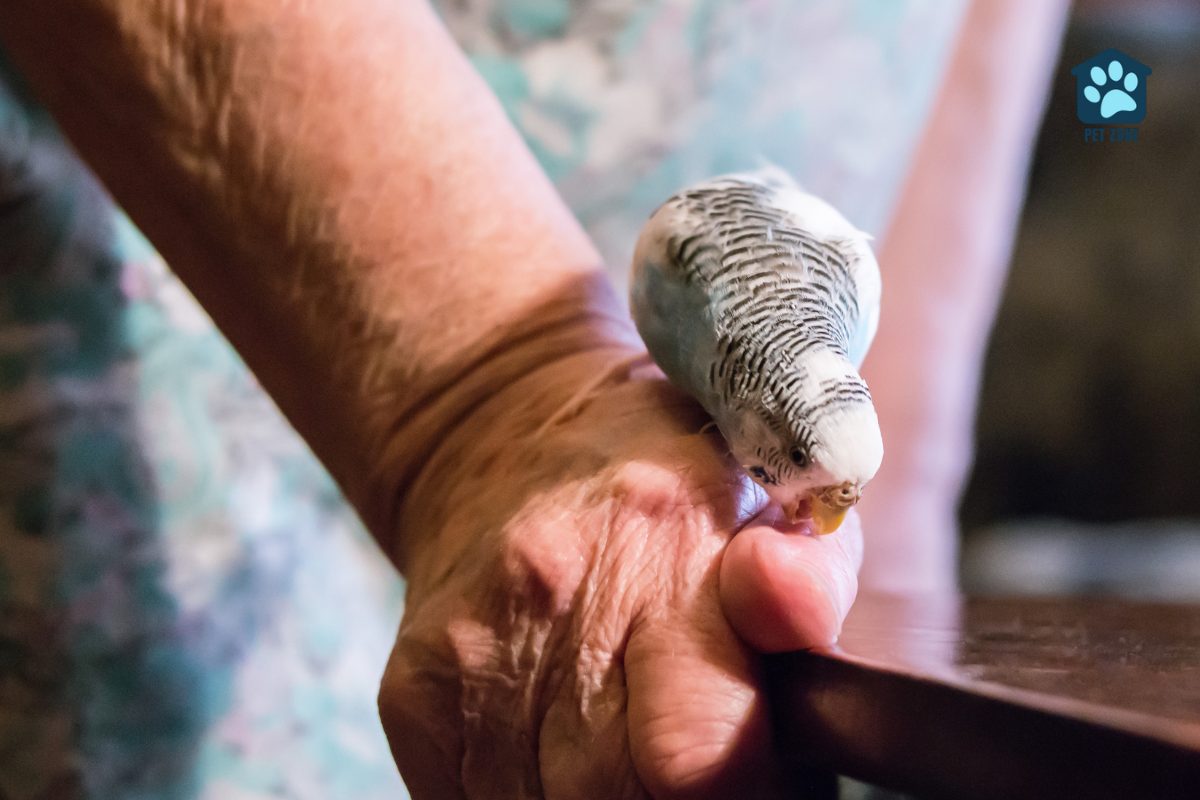
Fear or Jealousy
Sometimes budgies bite out of fear or jealousy. A new person entering the room could make your bird scared. This fear may cause them to bite. Also, if your parakeet loves you a lot and sees someone else near you, they might get jealous and bite.
Their bites can be sharp, so try not to scare them or make them feel left out. It’s key that your parakeet feels safe and loved with you and others around.
Boredom
Your parakeet may bite if it gets bored. Just like kids, these birds need fun stuff to do. If left alone with no toys or things to play with, they might start biting. Make the bird’s cage a fun place! Put in colorful toys that move and make noise.
Also, try hanging food from different parts of the cage for your budgie to find.
It is important for your pet’s happiness too. A bored bird can feel sad and this can cause bad behavior like biting. Spend time with your budgie every day and let it out of its cage often so it can fly around a bit.
Defending territory
Parakeets can bite to protect their space. They see the cage as home and may bite if they feel it is at risk. This is normal for them. Build trust with your bird to make it feel safe.
Do not rush this. Fast moves can scare the bird and make it bite more often. Next, give your budgie time alone in its cage each day. Make sure other pets or kids do not bother the bird during this time.
Mating instincts
Parakeets have strong mating instincts, which can sometimes lead them to bite their owners. During the breeding season, parakeets become more territorial and protective of their potential mate.
They may view you as a threat and try to defend their partner by biting you. It’s important to understand that this behavior is a natural instinct and not a personal attack. To address this issue, it is recommended to give your parakeet ample space during the breeding season and avoid handling them excessively.
Lack of owner confidence
If your parakeet is biting you, it may be because of a lack of owner confidence. When you’re unsure or nervous about handling your budgie, it can sense that and become anxious or defensive.
It’s important to be confident when dealing with a biting parakeet. Avoid punishing or yelling at the bird, as this can make the situation worse and increase its fear. Instead, focus on building trust and bond with your parakeet through gentle handling techniques and positive reinforcement.
By being calm and patient, you can help your parakeet feel more secure and reduce its tendency to bite. Remember that consistent training and regular interaction are key in gaining your parakeet’s trust and preventing biting behavior.
Dissatisfaction with diet or sleep schedule
Parakeets are sensitive creatures, and they can become unhappy if their diet or sleep schedule is not right. If it’s not getting the proper nutrients or enough rest, your budgie might resort to biting as a way of expressing its dissatisfaction.
To prevent this behavior, make sure you provide a well-balanced diet for your parakeet and establish a consistent sleep routine. Parrots and other large birds need at least ten hours of sleep each night to stay healthy and happy.
By maintaining a schedule for feeding and sleep, you can help stop your budgie from biting and promote positive behaviors instead.
How to Stop Your Parakeet from Biting
To stop your parakeet from biting, you can use proper handling techniques, bond with your parakeet, ensure they have a balanced diet and enough rest, and seek help from a vet if necessary.
Proper handling techniques
To stop your parakeet from biting you, it’s important to use proper handling techniques. Here are some tips:
- Approach your parakeet calmly and confidently.
- Start by slowly extending your hand towards your bird.
- Allow your parakeet to sniff or explore your hand before attempting to touch it.
- Offer a perch or a finger for your parakeet to step onto.
- Avoid sudden movements or jerking your hand away if the bird nibbles or bites lightly.
- If the bite is harder, gently blow on your bird’s face or give a soft “no” command in a calm voice.
- Reinforce positive behavior by offering treats or praise when your parakeet steps up without biting.
- Regularly spend time with your budgie to build trust and strengthen the bond between you.
Bonding with your Parakeet
Bonding with your parakeet is important to build trust and create a positive relationship. Here are some ways to bond with your parakeet:
- Talk softly to your parakeet: Speaking in a calm and soothing voice helps your bird feel more comfortable around you.
- Offer treats: Giving your parakeet treats can help create a positive association with you. Start by offering treats through the cage bars, then gradually offer them from your hand.
- Spend time near the cage: Being present near your parakeet’s cage helps them get used to your presence and feel more secure around you.
- Gradually handle your parakeet: Start by letting your bird perch on your finger inside the cage. Slowly increase the time and distance of handling as they become more comfortable.
- Provide interactive toys: Toys that encourage mental stimulation and playtime can help strengthen the bond between you and your parakeet.
- Be patient: Bonding takes time, so be patient and understanding with your feathered friend. Building trust requires consistency and positive reinforcement.
Proper feeding and rest
To stop your parakeet from biting you, it’s important to pay attention to their feeding and rest needs. Here are some tips to help with proper feeding and rest:
- Provide a balanced diet: Make sure your parakeet is getting a variety of nutritious foods, including fresh fruits, vegetables, seeds, and pellets. Avoid giving them too many sugary or fatty treats.
- Offer food from your hand: By hand-feeding your parakeet, you can create a positive association with your presence and reduce biting behavior. Start by offering small pieces of food on your open palm and gradually build trust.
- Stick to a consistent schedule: Establish regular meal times for your parakeet and make sure they have access to fresh water at all times. Having a predictable routine can help them feel secure and less prone to biting.
- Provide enough rest: Parakeets need adequate sleep to stay healthy and reduce stress levels. Ensure they have a quiet, dark environment for uninterrupted rest by covering their cage partially with a blanket or towel during sleeping hours.
Getting help from a vet
If you’re struggling with your parakeet’s biting behavior, it might be helpful to seek veterinary assistance. Veterinarians who specialize in avian care have the knowledge and experience to identify any underlying health issues that could be causing or contributing to your parakeet’s biting habits.
They can also provide guidance on how to properly handle and interact with your bird to prevent bites. By consulting with a vet, you can ensure that you’re taking the right steps towards addressing your parakeet’s biting behavior and creating a safer and happier environment for both of you.
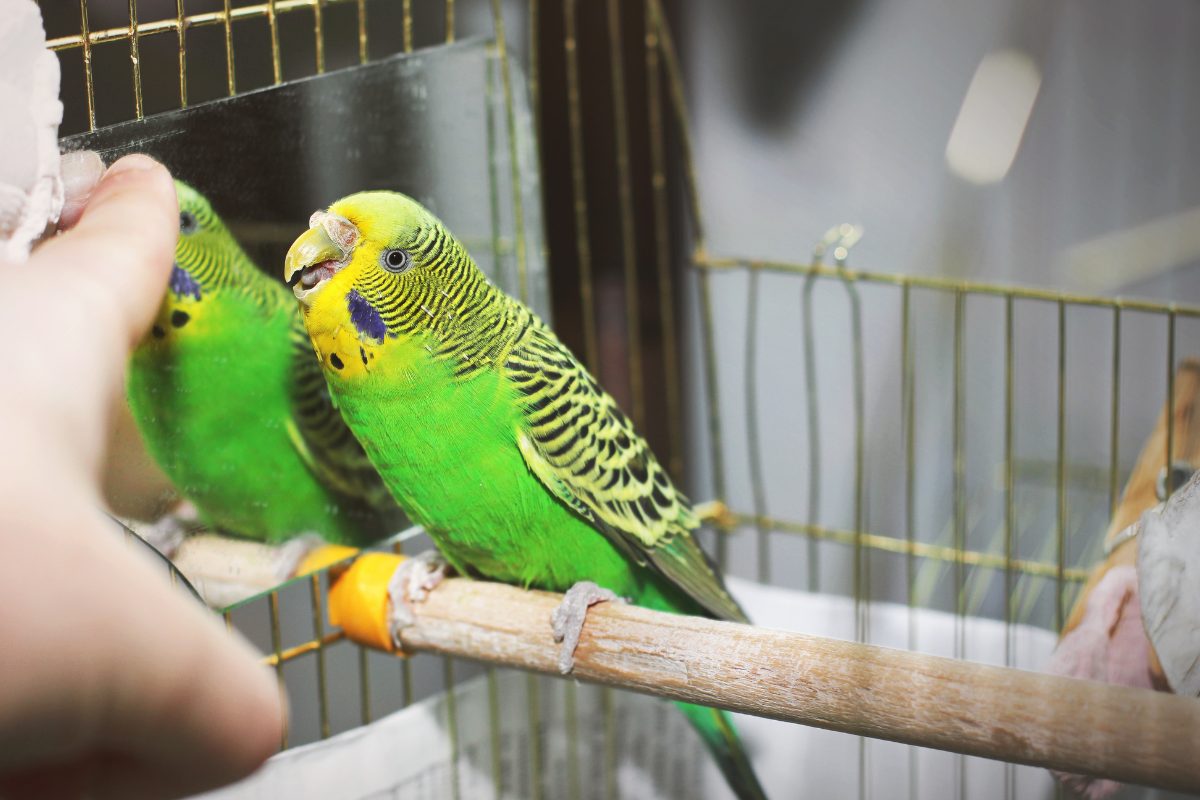
Managing Your Reaction to Your Parakeet’s Biting
When your parakeet bites you, it’s important to manage your reaction calmly and avoid reinforcing the behavior. Use positive reinforcement techniques consistently to help discourage biting and create a trusting bond with your feathered friend.
Staying calm
Remaining calm is crucial when dealing with a parakeet’s biting behavior. It’s important not to panic or get angry because negative reactions can actually reinforce the biting habit.
Instead, try to stay calm and composed when your parakeet bites you. One strategy is to gently push into the bite if you can bear the pain, as it sends a signal to the bird that their action didn’t affect you.
Ignoring bad behavior like screaming or biting is also essential in managing and correcting these habits in birds. By staying calm, you can create a positive environment for your parakeet and help them learn better behaviors over time.
Not reinforcing the behavior
To stop your parakeet from biting, it’s important to not reinforce the behavior. Here’s what you can do:
- Stay calm: When your parakeet bites you, stay calm and avoid reacting strongly. This will prevent your bird from thinking that biting gets a reaction from you.
- Remove your hand calmly: If your parakeet bites you, calmly and gently remove your hand instead of pulling away abruptly. This avoids reinforcing the behavior and shows that biting doesn’t lead to desired outcomes.
- Redirect their attention: When your parakeet tries to bite, redirect their attention to a toy or treat. This helps them associate positive reinforcement with other activities instead of biting.
- Use positive reinforcement: Reward your parakeet with treats or praise when they behave well and show gentle behavior. This encourages positive actions and helps reduce biting tendencies.
- Be consistent: Consistency is key when training your parakeet not to bite. Reinforce good behavior consistently and avoid rewarding or reinforcing biting behavior.
Using positive reinforcement
You can use positive reinforcement to encourage good behavior in your parakeet. Here are some tips:
- Reward your parakeet with treats or praise when it exhibits desirable behavior, such as sitting calmly on your hand or following a command.
- Use a clicker or verbal cue, like “good bird,” to signal that the behavior is correct and will be rewarded.
- Be consistent with your rewards and make sure they happen immediately after the desired behavior.
- Avoid punishing or scolding your parakeet for bad behavior, as this can be counterproductive and may cause fear or aggression.
- Focus on reinforcing positive behaviors rather than trying to eliminate negative ones. Positive reinforcement helps to establish a bond of trust and encourages your parakeet to repeat good behaviors.
Consistency is key
To stop your parakeet from biting, consistency is key. This means that you need to respond to its biting behavior in the same way every time. If you react differently each time it bites, your bird may get confused and think that biting is acceptable.
Stay calm when your parakeet bites and avoid yelling or getting angry. Instead, ignore the bird whenever it bites you. By not giving it any attention when it exhibits this behavior, you are discouraging the association of biting with getting attention.
Consistency also applies to other aspects of caring for your parakeet, such as creating a schedule for feeding and rest. Stick to these routines so that your bird feels safe and secure, which can help prevent biting behaviors in the long run.
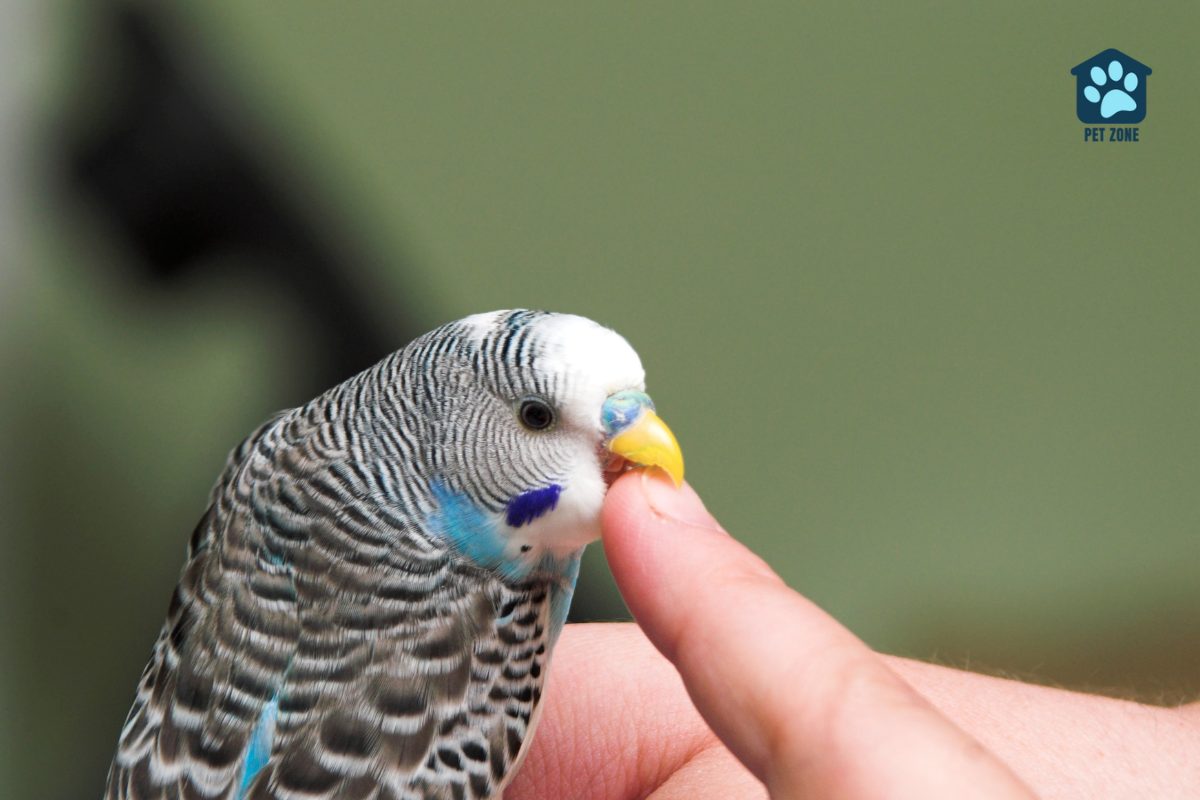
Conclusion
Understanding why your parakeet is biting you is key to addressing the issue. It could be due to fear, boredom, territoriality, mating instincts, lack of confidence in the owner, or dissatisfaction with diet and sleep schedule.
To stop your parakeet from biting, try proper handling techniques, bonding with your bird, ensuring proper feeding and rest, and getting help from a vet if needed. Remember to stay calm when managing the situation and avoid reinforcing the behavior.
With consistency and patience, you can help prevent or reduce biting behavior in your parakeet.
As an Amazon Associate I earn from qualifying purchases.
